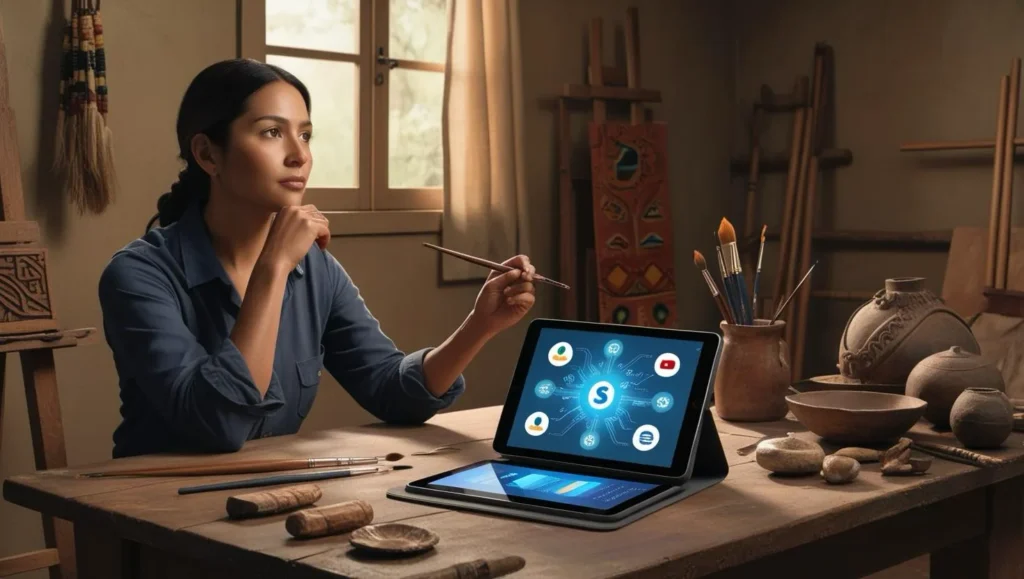In digital colonialism, artists face a complex set of ethical challenges that reflect the power dynamics and exploitation embedded in digital platforms and technologies. While digital tools offer opportunities for innovation, they often perpetuate historical inequalities, placing artists — particularly from marginalized cultures — in vulnerable positions.
Key Ethical Challenges
Cultural Appropriation
One of the most prevalent dilemmas is cultural appropriation, where artists from dominant cultures use elements of marginalized cultures without understanding or respecting their origins. This results not only in the distortion of these cultural expressions but also in a symbolic erasure of the identities of those who originated them. The irony is that, while these practices are often framed as “tributes” in the global market, they perpetuate the exploitative dynamics established by historical colonialism.
Technological Domination
Major corporations from the Global North control key digital ecosystems, from software and hardware to connectivity. This dominance imposes economic and cultural barriers on artists from peripheral nations, limiting their visibility and access to global platforms. Ironically, while these platforms claim to democratize access to art, they reinforce technological monopolies and centralize profits.
Crises of Cultural Value
Western hegemony in digital curation prioritizes specific cultural values, marginalizing non-Western narratives and artistic practices. This bias not only compromises cultural diversity but also forces artists from other traditions to constantly adapt to imposed norms. The paradox here is clear: while digital art should expand horizons, it often narrows them.
Distraction and Erasure of Indigenous Cultures
Digital colonialism also distorts or erases traditional art forms. Dominant cultures impose their technological and aesthetic standards, overshadowing local artistic expressions. This erasure is not just symbolic — it is reinforced by algorithms that prioritize certain content over others.
Unequal Access
The promise of an inclusive digital space clashes with the reality of unequal access. Artists from less developed regions often face technological, economic, and cultural barriers, relegating them to a peripheral position on global digital platforms.
Possible Solutions and Alternatives
Fostering Equitable Dialogues
Promoting intercultural dialogues that respect the richness of local traditions and narratives is essential to combat cultural erasure. This requires recognizing and valuing diverse artistic expressions without hegemonic filters.
Supporting Local Collaborations
Collaborative efforts between artists, communities, and institutions can create a more inclusive digital environment. These collaborations must prioritize respect for cultural particularities and decentralization of power.
Reimagining Digital Curation
Curation must be rethought to challenge power dynamics. This includes amplifying the voices of marginalized artists and reevaluating how artworks are displayed and interpreted in digital spaces.
Digital Art History Tools
Using digital tools to explore colonial art histories can help students and researchers develop a critical perspective on the implications of colonialism in modern platforms.
Promoting “Digital Disruption”
Collaboration among peripheral nations can decentralize technological control, fostering digital art practices aligned with local contexts. This strategy also nurtures cultural empathy and stimulates critical thinking about technology.
Conclusion
The ethical challenges in the context of digital colonialism reflect the tensions between innovation and inequality. For artists to resist these dynamics, there must be greater awareness of the impact of digital platforms and active efforts to promote equitable and inclusive practices. Reclaiming colonial archives, using digital manipulation to recover historical narratives, and critically questioning dominant systems are fundamental steps toward creating a digital art ecosystem that values cultural diversity and social justice.

